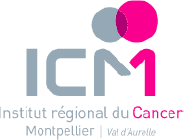Identifying the onset of cancers or their relapse as early as possible is one of the challenges of oncology.
Unicancer, a pioneer in personalized medicine, has developed for several years, as part of its research strategy, a research program on circulating tumor DNA.
Several clinical studies or translational research have been and are being conducted at Unicancer, in different indications, in order to better characterize and validate the clinical utility of these biomarkers.
The impact is not only significant at the time of cancer diagnosis, but also when choosing treatment and throughout care.
We are pleased to present the results of these essential studies for effective personalized and egalitarian care for all patients.
One important Unicancer’s line of research is to develop and promote the use of circulating tumor DNA (ctDNA) during cancer care. This DNA released from tumor cells into the bloodstream contains the mutations of the primary tumor. Detection of this particular DNA is a non-invasive technique for patients and may represent a new tool to help physicians in their endeavor to offer the best possible care for cancer patients.
To improve patient survival and quality of life, Unicancer promotes an increasing number of clinical studies to investigate the role of circulating tumor DNA detection in digestive, liver, colorectal, pancreatic, breast, and head and neck cancers.
Therefore, Unicancer investigates the value of circulating DNA detection at different cancer care stages:
- At diagnosis to facilitate and improve cancer detection. This can translate in early detection of the disease
- At treatment to help to decide the best treatment choice for each patient (personalized medicine) or to initiate a switch of treatment at the best possible timing, even before clinical detection of disease progression
- After treatment to determine the prognosis and thus to adapt supportive care for patients







